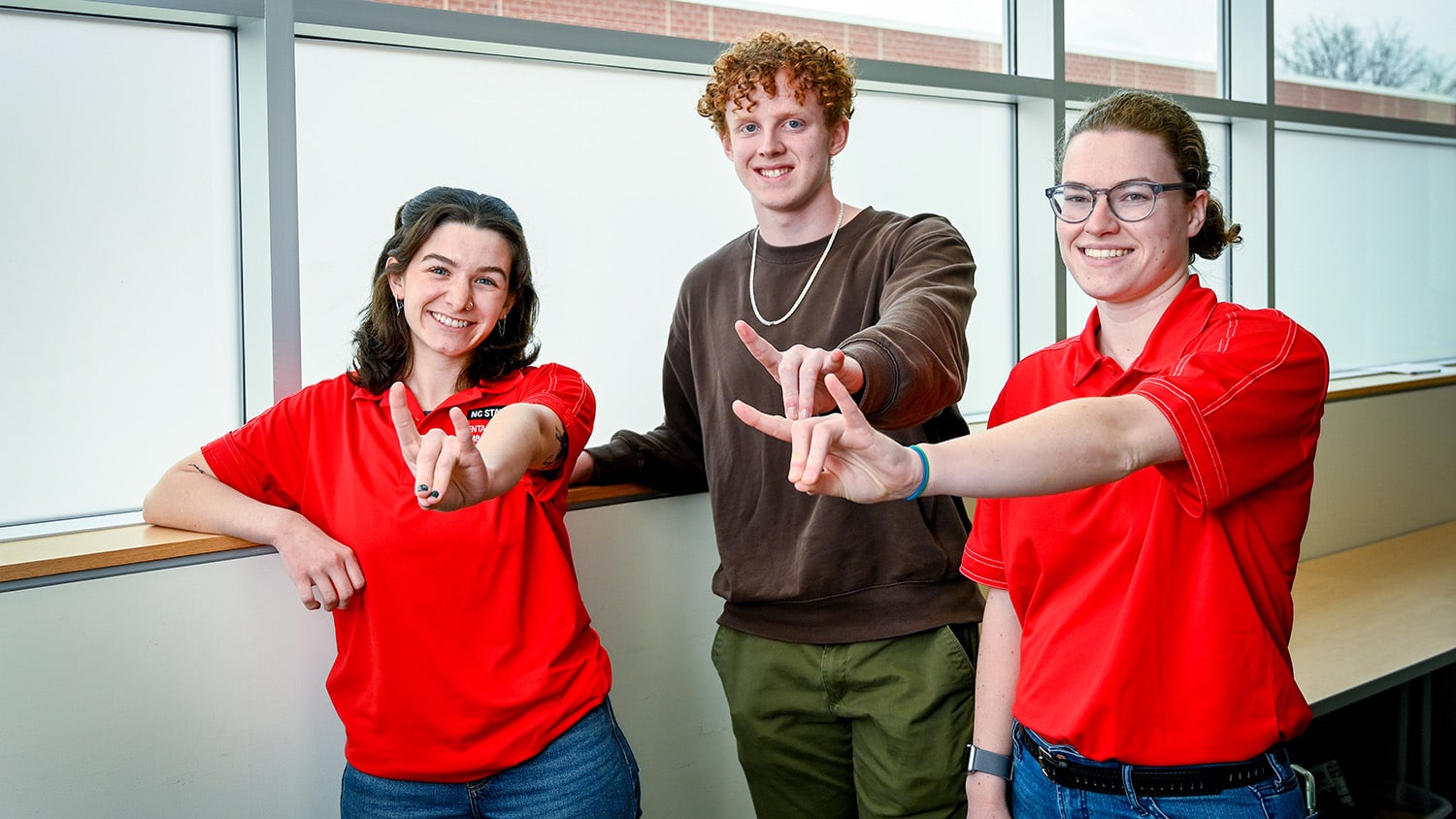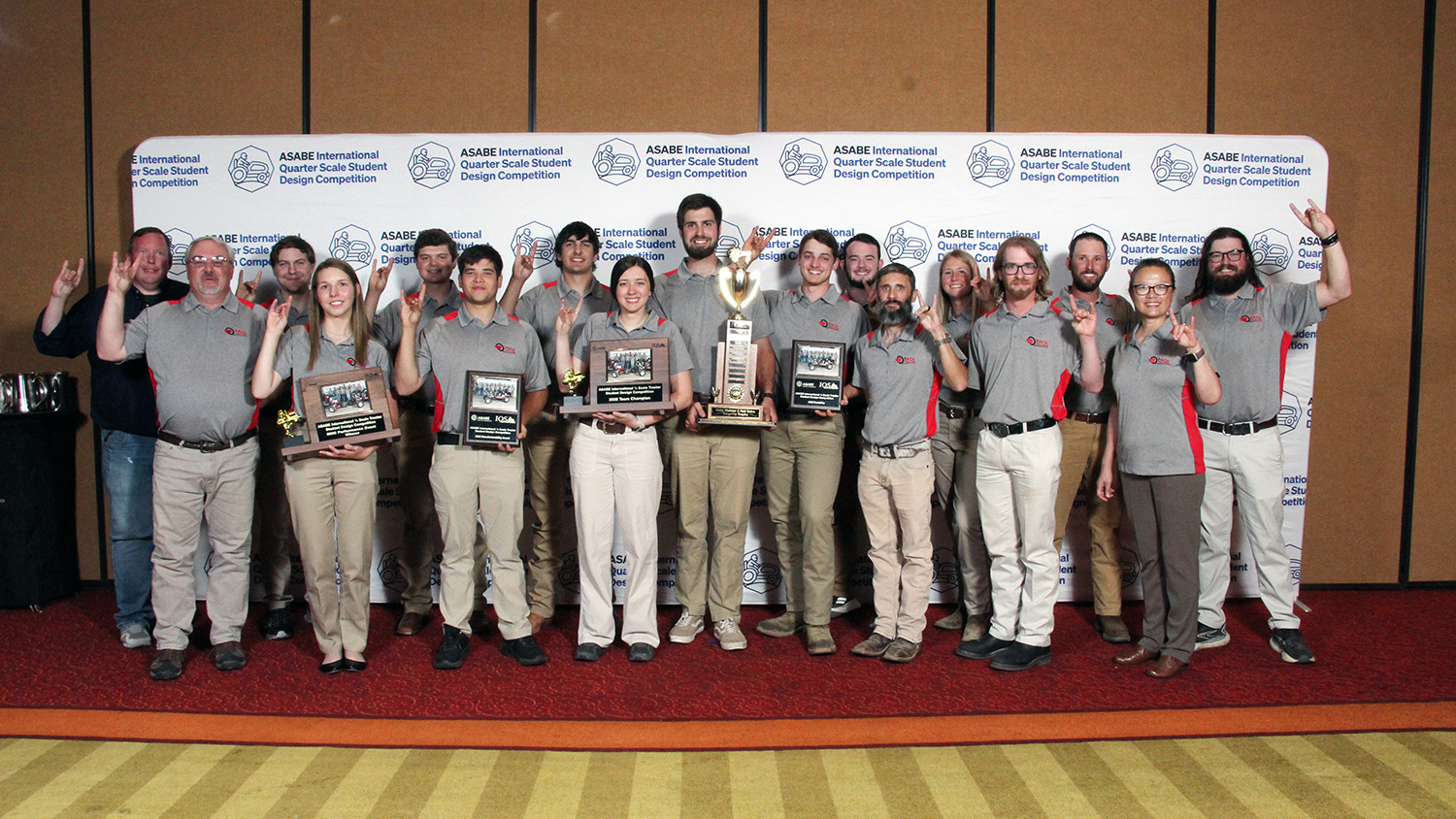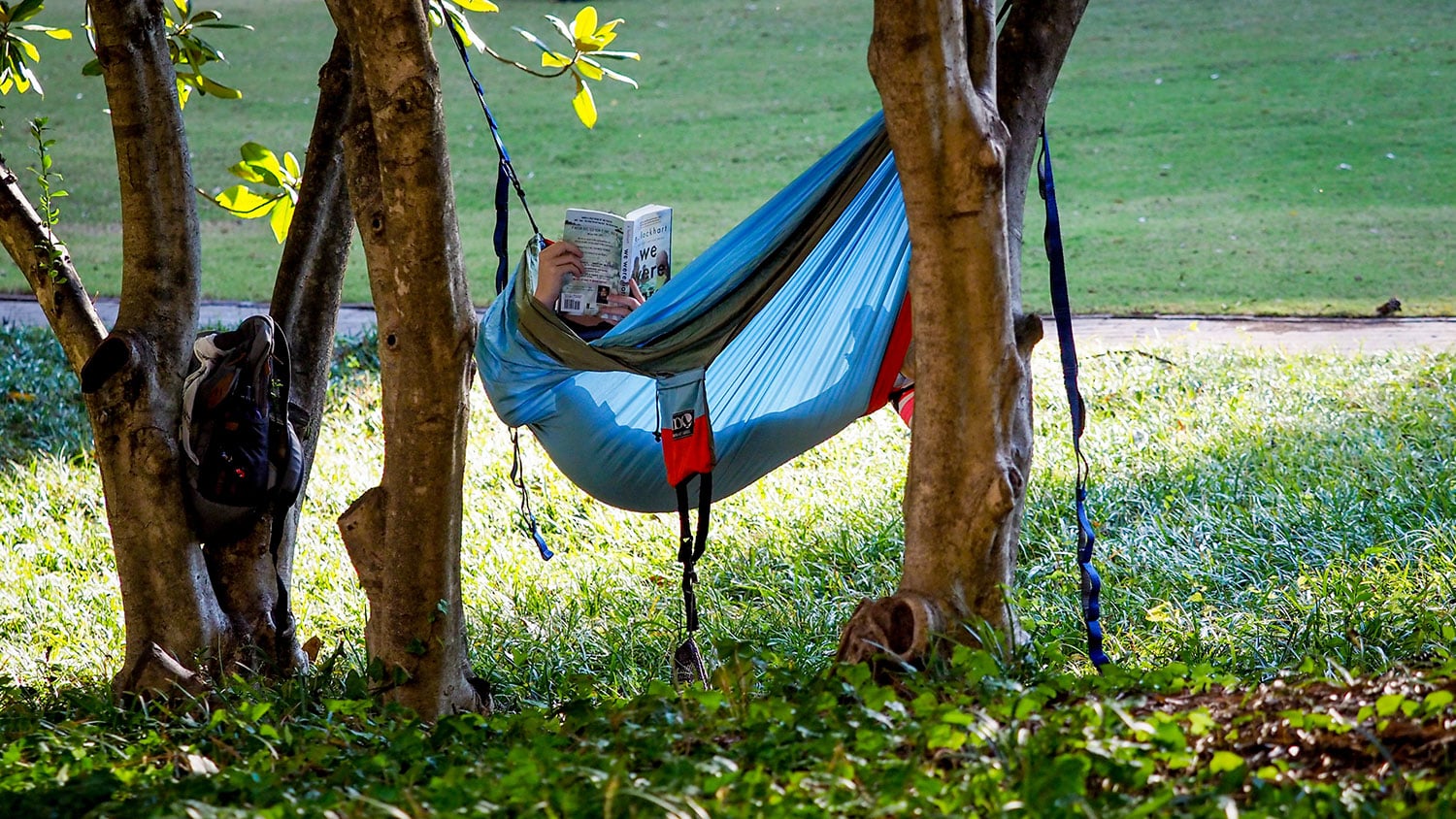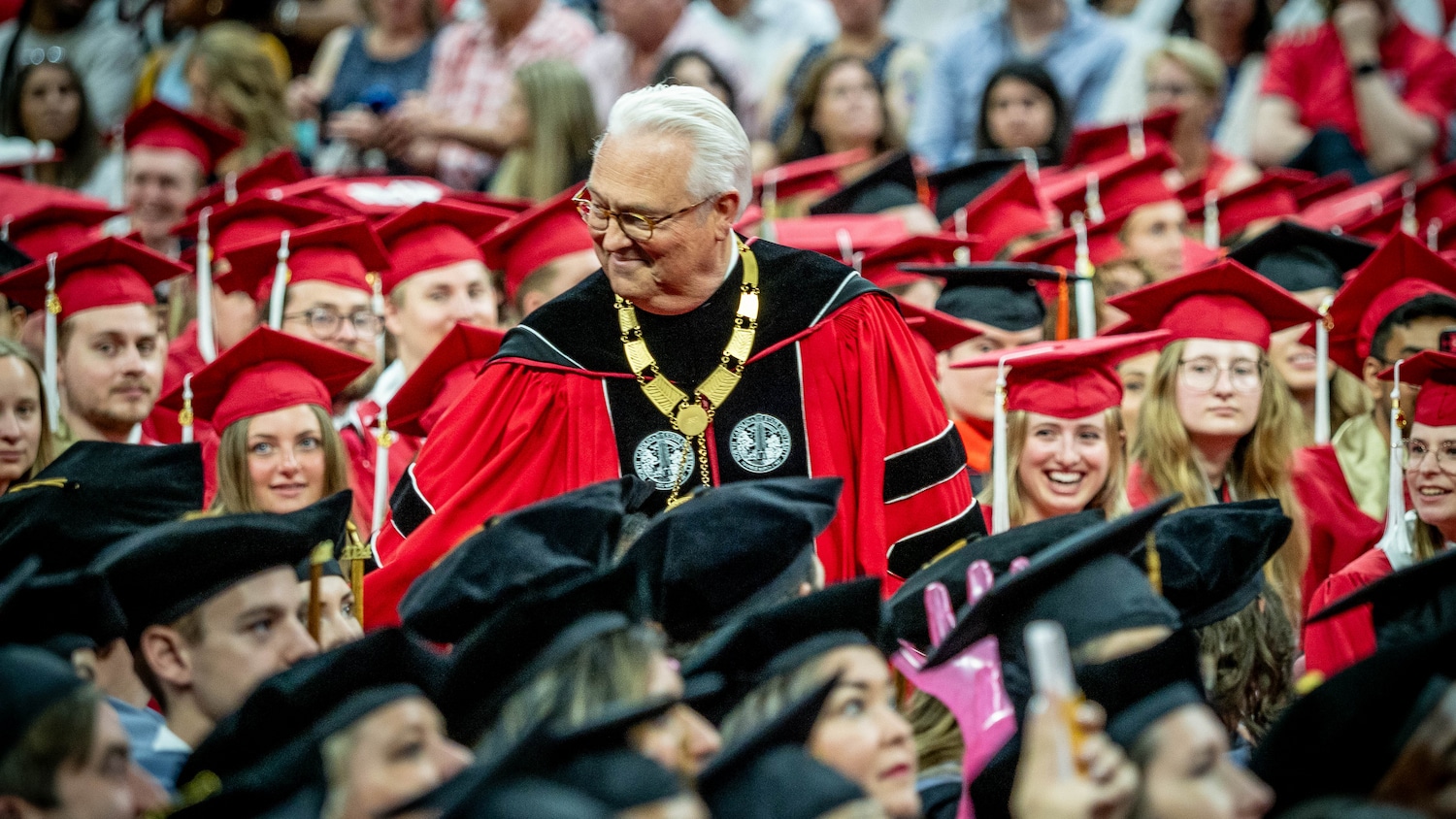A Community of Care: Student Mental Health Ambassadors

During her freshman year at NC State, Alexis Jacobs struggled to find a community of her own. It felt like her classmates were living their best lives while she had difficulty transitioning from high school to college. Then, that spring of 2020, cases of COVID-19 reached North Carolina. Jacobs had to leave campus and return home to Fayetteville.
As on-campus classes returned a year later, Jacobs decided to help others find their own sense of belonging. In her junior year, she joined the Mental Health Ambassadors — a group of undergraduate and graduate students dedicated to mental health outreach and advocacy on campus.
“It’s easy to feel really isolated on this huge campus if you don’t have community,” said Jacobs, who’s graduating this semester with degrees in English and psychology. “For me, mental health outreach is really important to help others find that community.”
Mental health outreach is really important to help others find that community.
The Mental Health Ambassador Program centers on peer-to-peer education, which is “all about breaking down the stigma of mental health and relating to someone on a personal level,” Jacobs said. Ambassadors give presentations about mental health and wellness to academic classes, host events about mindfulness and self-care and lead Start the Convo, a drop-in space for students looking for community and connection. The ambassadors also meet one-on-one with individuals to listen to their problems and connect them with campus resources.
“Peer-to-peer education is helpful in making sure people feel another person truly understands what they’re going through,” said Emily Anderson, NC State Prevention Services’ outreach and resilience coordinator. “They can share those experiences — share what it’s like to have anxiety and to be a current student — and connect in that moment.”
Building a Culture of Care
About 30 students are Mental Health Ambassadors. While they come from different backgrounds and reflect different experiences, they’re all dedicated to helping fellow students understand mental health issues and what resources are available. Their work supports a culture of care here at NC State.
“We need to build a culture of speaking up and saying when you’re not OK,” said Caleb Moore, a junior studying mechanical engineering. “We can bring the community together and deal with problems that everyone thinks they’re dealing with alone.”
We’re all doing the best we can as humans.
Moore joined the ambassadors in fall 2022, hoping to help break down the stigma of mental health issues — especially as a man studying engineering.
“I can relate to the engineers — they have so much pressure to do well academically that they can lose their balance,” he said. “I used to always keep issues to myself, but having conversations about them has been helpful and healing. It’s led me to have a healthier inner monologue.”
In talking with his peers, Moore hopes to validate their concerns and assure them they’re not alone. It’s important to truly listen, understand their experiences and find resources that can best serve them.
“People with mental health issues sometimes think they’re not normal, but they are,” Moore said. “We all go through things differently. We’re all doing the best we can as humans.”
Learning How to Help
The Mental Health Ambassador Program is part of Prevention Services, whose outreach efforts support students’ mental, emotional and physical wellbeing. Applications are open once each academic year for students interested in becoming ambassadors.
”We’re looking for more voices to make sure we’re meeting the needs of our campus,” Anderson said. “We need a variety of students to help with our programs. We can benefit from having your voice.”
To prepare for their roles as ambassadors, students learn about several aspects of mental health and become experts in campus resources. In addition to completing 12 hours of Certified Peer Educator training, students attend a variety of educational sessions about topics like trauma and interpersonal violence prevention, eating disorders, substance abuse and veteran and service member support. Ambassadors serve on one of four subcommittees in the program: suicide prevention; alcohol and other drugs; diversity, equity and inclusion; and graduate student programming.
While ambassadors aren’t mental health professionals, their work enables them to connect students to spaces on campus that can meet their needs.
“Don’t be afraid to use resources on NC State’s campus,” Jacobs said. “It can be intimidating to take that step, but it’s super important to take advantage of the resources available.”
Looking Out for Others — and Yourself, Too
As they learn about mental health to help their peers, Mental Health Ambassadors grow personally, too. By participating in the program, Lauren Bradley, a senior majoring in social work, has learned more about her career goals.
“I’ve definitely gotten out of my shell,” she said. “I’ve grown in a lot of ways — definitely in terms of public speaking and feeling comfortable in front of people.”
Bradley often gives presentations to classes and is a Start the Convo facilitator. Her objective is to teach students ways to care for their mental health. She created a presentation called “Managing Burnout,” which encourages students to respect themselves, their boundaries and their time. She also teaches students to “HALT,” or see if their basic needs are met: Are they hungry, angry, lonely or tired?
“Mental health can be affected by so many things — feeling accepted in the community, being safe, having your basic needs met,” Bradley said. She plans to work in a field adjacent to mental health care before beginning a master’s degree in social work.
Like Jacobs, it was difficult for Bradley to find her community on campus before the COVID-19 pandemic started. She struggled with her own mental health during that time and relied on self-care and compassion. Now, as an ambassador, she wants to make sure her peers are gentle on themselves and feel comfortable using any resources they need.
“Life is hard and challenging, and it’s so much easier to have someone in your corner,” she said. “Even if you have yourself in your corner, it’s so much better than having no one.”
Even if you have yourself in your corner, it’s so much better than having no one.
Bradley, Jacobs and Moore believe students shouldn’t be afraid of reaching out if they need help or know someone who does. They encourage others to check in on their friends and see if their own communities are OK. Those conversations can show someone how much they’re cared for.
“It’s important to build up a support group,” Moore said. “We want to encourage deep conversations, as opposed to staying on a surface level. They’re tough, but you might need to have those conversations more than anything else.”
- Categories:


